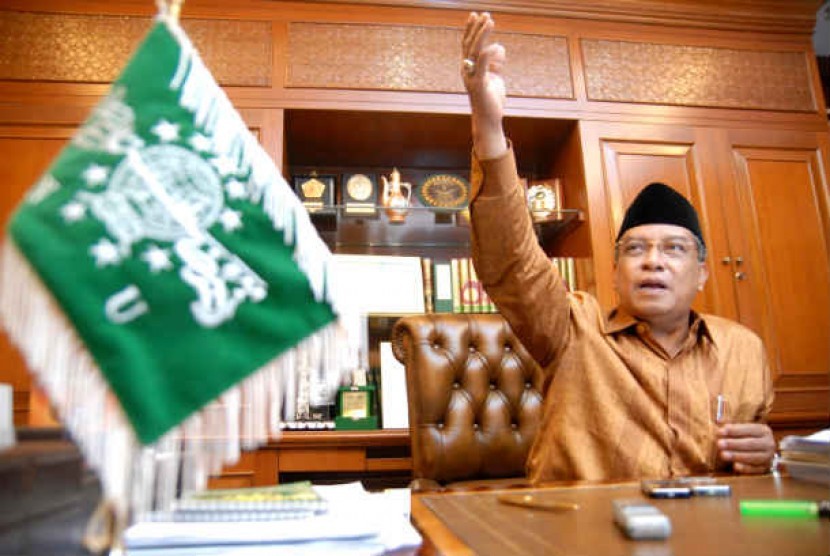REPUBLIKA.CO.ID, JAKARTA -- The general chairman of the executive board of the Nahdlatul Ulama Islamic organization (PBNU), KH Said Aqil Siroj, opposes the creation of a central axis to unite Islamic parties during the upcoming presidential election.
"We do not want to see a Islamic-non-Islamic parties dichotomy, as it impresses primordialism," he said here on Saturday.
He added that relations between state and religion relations have been settled and so it is no longer relevant to differentiate between religious and nationalist groups.
"In Indonesia, the statehood problem had been settled, and so focus now should be put on how to improve the people's welfare," he said.
He said the situation was different from that in the Middle East, where no agreement has been met yet with regard to relations between religion and state, so that conflicts between religion and state have often occurred there.
"What is important now is prioritizing the interest of the nation, because if the country is advanced, the Moslem people who are the majority in the country would also advance," he said.
Asked if PBNU would propose a presidential or a vice presidential candidate to political parties, he said PBNU would not be involved in practical politics.
"That is the affairs of PKB (the Nation Awakening Party), but certainly PKB must never leave PBNU behind by maintaining their communication and exchange of views," he said.
Aqil said NU has a larger agenda than that of political parties, because NU's affairs are not power, but nationhood.
Under the leadership of Amien Rais, Islamic parties in 1999 merged by setting up a central axis and successfully elected Islamic figure Abdurrahman Wahid to the presidency, defeating Megawati Soekarnoputri in an election by members of the People's Consultative Assembly (MPR), despite the fact that Megawati's party won the most votes in the legislative elections.
In the legislative elections on April 9, five Islamic parties won less than ten percent of the votes, while nationalist parties PDIP, Golkar and Gerindra won, respectively, more than 19, 15 and 11 percent.
Meanwhile, some quarters have suggested that the Islamic parties merge so that they could nominate their own presidential candidate for the July 9 elections.


